To say we lean on our volunteers (and interns) when times get tough is an understatement.
There is so much to do and the days feel so short right now. To appreciate how critical the volunteers are, it may help you to understand how our team operates.
Each day, one of our staff members has the role of Lead Caregiver and is primarily responsible for opening and closing the facility, operating and unlocking doors, responding to safety issues, and synchronizing all of the day’s personnel. Think of them, as Chad nicely puts it, as “air traffic control.” A second staff member is tasked with completing daily chores, preparing meals and enrichment, distributing medications, and approving all of the Lead’s door operations. In short, two caregivers manage the Chimp House as partners for the day. Their typical itinerary looks something like this:
Open, check, serve, shift, check, clean, check, shift, check, clean, check, shift, serve, organize, tidy, blog, check, shift, clean, serve, check, close. Somehow find time to answer emails. Repeat all of it the next day.
A third staff member may be asked to help them, but that still only leaves just enough time to complete the bare essentials, with no time left for administrative work, sanctuary upkeep, or other miscellaneous projects. It’s safe to say that we need extra help, and we’re fortunate enough to have a full corps of capable and eager volunteers who support our staff every day.
Volunteering is a big commitment. Just to even be on site, applicants must go through rigorous training. This process includes a preliminary application and a safety orientation followed by months of interactive learning. Even for volunteers and interns who come in weekly, it takes months of hard work to become proficient at basic tasks. While becoming familiar with all the essential duties, most volunteers also learn to distinguish the individual chimpanzees and conduct the necessary checks before unlocking enclosures for cleaning. This is not a task to be taken lightly. At the highest level of responsibility, some volunteers are even trained to have protected contact with the chimpanzees through the steel caging. With this specialized skill set comes the ability to directly serve meals to the chimps.
Because volunteers “lend a hand” with many time-consuming tasks, caregivers sometimes have the flexibility to work on other endeavors (such as writing long-winded blog posts with accompanying videos). The volunteers also advocate for chimps via outreach events, work to inspire donations, devise and build new enrichment items, and assist with monitoring chimpanzee health and behavior. They’re an integral part of our team.
Most importantly, the individuals who volunteer here are great people who love the chimpanzees. In addition to making the workplace more interesting for our staff, they certainly help the chimpanzees to have a good time. Volunteers will often be seen dutifully putting on cowboy boots for Jamie, running around the Hill with Missy, playing tug-of-war with Burrito, stomping around with Willy B, and pretending to be excited when Honey B gifts them random items through the caging (today’s most notable gift was an elastic headband). We appreciate the extra hands, but the chimps may appreciate them even more.
Of course, the volunteers get unique experiences and acquire new skills in exchange for their efforts. Some volunteers are enrolled in internships for academic credits through our partnership with Central Washington University, and dozens have utilized this pathway to earn graduate degrees or professional certificates and advance their careers. Many of the sanctuary’s alumni have progressed to serving at other reputable sanctuaries, working as zookeepers in accredited zoos, studying nonhuman primate behavior in academic contexts, advocating for animal welfare and conservation via science communications, and caring for nonhuman animals in veterinary settings. A few former volunteers have even found themselves employed at CSNW as caregivers (I wonder if you can guess who I am referring to). Still, other volunteers have unrelated professions but equally contribute to the chimps’ well-being in impactful ways.
It truly is a diverse, talented, and diligent group of people. I can’t say that any one of them is the best volunteer, but I like to brag that we really do have the best volunteers.
Also, I would like to specially thank the Sunday Squad for letting me awkwardly film them as they worked in the Chimp House. You’re all rock stars.





Thanks so much to all. Making a life good for those beautiful creatures in your care must be so satisfying, we are grateful for your hard work and generosity.
I’m sending over a big “Thank you” to all the caring, hardworking volunteers and interns. Clearly you have a big responsibility catering to the chimps but oh the sheer pleasure of having ten chimpanzees that you can call friends. I do envy each and every one of you. And thanks so much Anthony for letting us see a small peek into all the never ending energy that keeps the sanctuary going. (And you didn’t touch upon the work that must be needed to keep your beautiful bovines happy.)
Great idea for the blog, Anthony! We’d been told about lead and second, but beyond that, the number of volunteers on hand on the daily was kind of a mystery…thanks for showing how many hands it takes. Being an upper level volunteer, besides the reward of getting to make chimp friends, has the added benefit of burning off some calories!
Oh, and please extend our apologies to the Boss for interrupting her boot inspection.
Anthony: I truly enjoyed this report; reading about the 7 staff members and their backgrounds, and seeing all the work that goes on to keep the sanctuary running, healthy and entertaining. Rough job your vet has not being able to use hands-on for examinations as would a regular dog/cat veterinarian. I admire all your staff and envy your volunteers who clearly love what they are doing.
My husband and I were very active volunteers at Save the Chimps in Ft.Pierce, Florida for five winter seasons until we moved full-time back to New Hampshire. To say we miss the chimps and the staff is an understatement. And aside from having children, without question it was the BEST thing we have ever done. We were recently visiting our son in Leavenworth and passed through Cle Elum. ?????
Oh, jelly here! I for one would not mind hearing some anecdotes, if ever this blog brings back a memory!
Hard work and dedication, thank you all who watch over these precious souls. I’ve always seen anyone who gets to take care of the chimps as the luckiest people on Earth.
Having worked with chimps at another facility, I recognize the high quality of care the chimps receive at your sanctuary. I just love that they have lots of toys, blankets, clothes, and attention. Your staff and volunteers are to be commended!
Thank you to all the dedicated staff and volunteers! You do an amazing job!
Also, thank you for all these wonderful blogs and videos!
Although I wouldn’t want my “help” to interfere with the very complex interactions between the chimpanzees and their trained caregivers, if I lived anywhere near the Sanctuary, I would apply to undergo training to assist with the upkeep of the facility. While I doubt that my footwear would pass muster with the Boss, with any luck Meredith and her friends would appreciate my provisions of hay and side scratches.